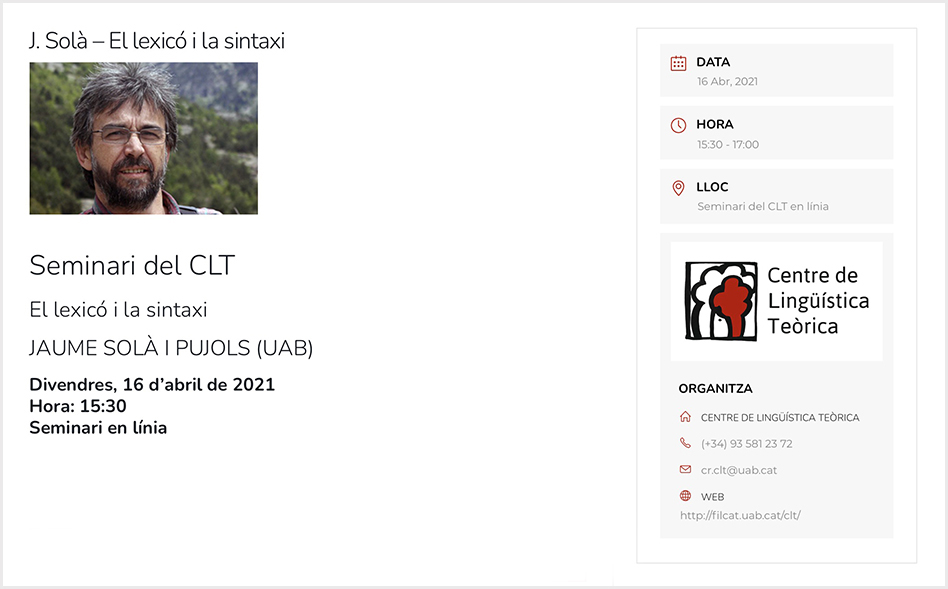Seminari del CLT
El lexicó i la sintaxi
Jaume Solà i Pujols (UAB)
Divendres, 16 d’abril de 2021
Hora: 15:30
Seminari en línia
Enllaç al seminari
The purpose of this talk is to introduce a theory on how the lexicon determines syntactic variation. I address three issues:
a) The only source of syntactic variation is the lexicon.
b) There must be a narrow limit on what the lexicon may specify.
c) We must define what universal syntax is.
So that the lexicon must ser rich enough to predict all syntactic variation, and no so rich as to cancel syntactic universals.
The main source of lexical variation is syntheticity, which triggers movement, versus analycity, which triggers external merge. Syntheticity is the fact that more than one syntactic category appears in a single word (Catalan: menjava [V: ‘to eat’ + Asp: imperfective + Tense: Past]). It triggers movement from one category to the other. This predicts a wide range syntactic variation, since languages show many forms of syntheticity, hence of movement.
Syntheticity also holds in phrases, as in which book [NP: ‘a book’ + interrogative], which triggers wh- movement. Chinese is analytic in this respect and has no wh-movement.
Universal syntax is not an invariable derivation, but an invariable system or mechanism of dealing with the lexical specifications: syntheticity <-> movement.
Head-complement word order will also be addressed.


